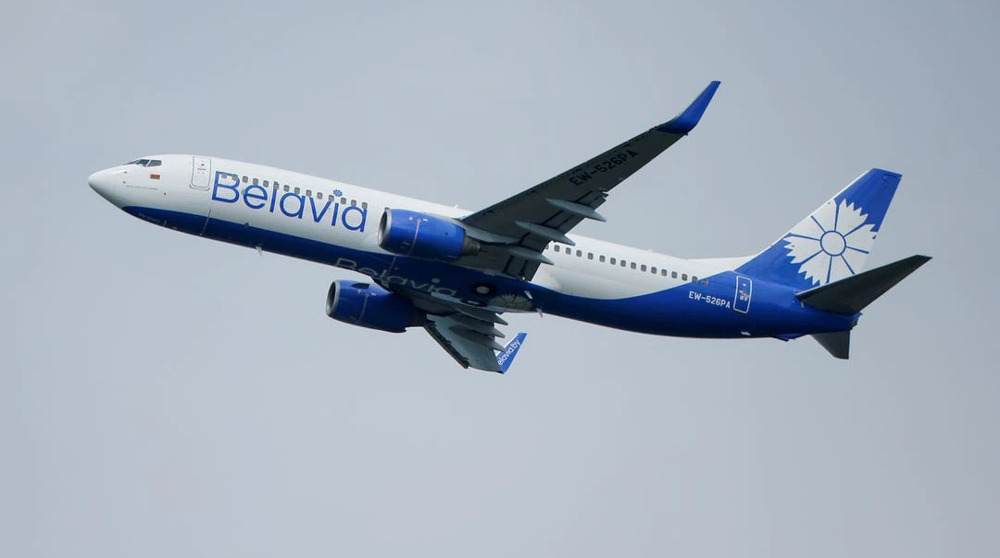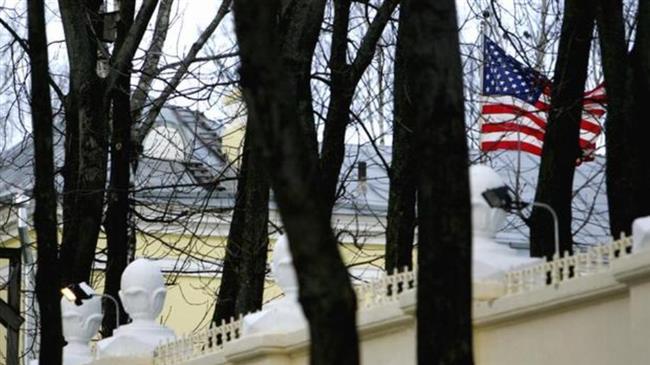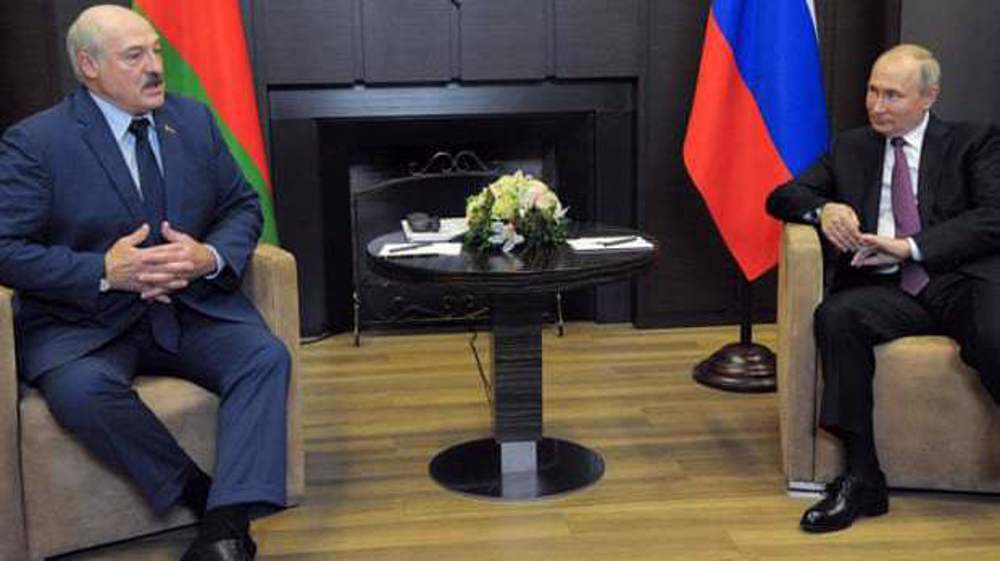EU bans Belarus airlines from using its airspace from midnight
The European Union (EU) has banned Belarusian airlines from using the bloc’s airspace or airports, as part of punitive measures, amid tense relations over the last month's grounding of an intra-EU flight in Minsk.
Last month, a Ryanair passenger plane heading from Greece to Lithuania had to make an emergency landing at Minsk International Airport, following a reported bomb scare that proved to be a false threat later.
Belarusian law enforcement forces detained dissident figure Roman Protasevich, who was among the plane's passengers along with a female companion identified as Sofia Sapega, after it was diverted to the Minsk airport.
The detentions have sparked furious criticism from many European countries, who began the process of banning Belarusian airlines from flying over the bloc’s airspace or landing in its airports.
The EU adopted the plan on Friday, according to diplomats, who said the measures will take effect at midnight Central European Time (2200 GMT).
Under the ban, all EU countries backed the measures, they said.
In the meantime, exiled Belarusian opposition figure, Sviatlana Tsikhanouskaya, called on the Group of Seven (G7) wealthy countries to impose new sanctions measures on his country.
Tsikhanouskaya fled Belarus for Lithuania following presidential elections in August 2020.
The US also announced plans to target officials and businesses in Belarus with sanctions over the detentions, last week.
Washington’s sanctions went into effect on Thursday.
“Unfortunately, the Belarusian authorities have brought a relationship to this point, through relentless and intensifying repression against their citizens," US State Department spokesman Ned Price said on Thursday.
In response, Belarus announced that Washington would have to cut the number of diplomatic and administrative staff at its mission in capital city Minsk.
Minsk also said it was tightening visa procedures for US citizens working there and had revoked permission for the US Agency for International Development (USAID) to work in the country.
This is not the first time the West has moved against Belarus. Long before the plane incident, the bloc had imposed sanctions on Lukashenko and some of his associates, in the wake of the unrest that gripped the country after last year’s election.
President Alexander Lukashenko won re-election in the August 9 vote, but the opposition rejected the official results and alleged voter fraud. The US and the EU likewise rejected Lukashenko’s re-election.
Minsk dismissed the allegations of vote rigging, and Lukashenko said Western governments were seeking to destabilize the ex-Soviet state.
VIDEO | Iran’s Leader receives eulogists on Hazrat Fatima birth anniv.
VIDEO | Israel continues to bomb Gaza homes
‘All wars have rules. All of those rules have been broken’ by Israel
VIDEO | Report flags India’s violation of rights of Rohingya detainees
Turkey's foreign minister meets Syria's de facto leader in Damascus
VIDEO | US Syria plots
'Next to impossible' to rescue patients from Gaza's Kamal Adwan Hospital: Director
VIDEO | Vietnam current prosperity














 This makes it easy to access the Press TV website
This makes it easy to access the Press TV website